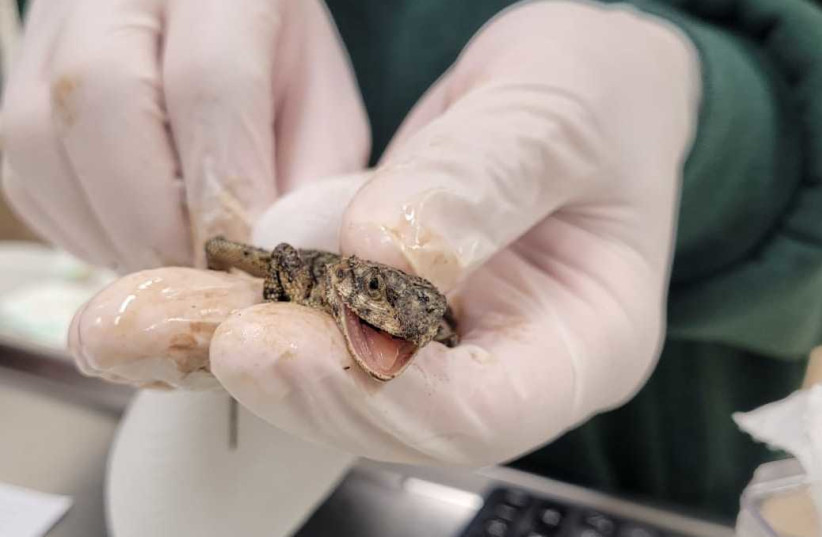The cleaning of the tar is done using special oils. It is a lengthy process that requires patience and an especially gentle hand.

By IDAN ZONSHINE FEBRUARY 21, 2021
Following the major ecological disaster that has befallen Israel’s shores as a result of the large amount of toxic oil spilled during a storm on Wednesday, the Nature and Parks Authority and the Safari’s Wildlife Hospital in Ramat Gan have begun to come across many animals with multiple, complex injuries.
In a report filed on Sunday, the Wildlife Hospital detailed the heartbreaking damage that the oil spill has wrought on Israel’s wildlife, adding tips on safe cleaning for those who wish to volunteer in the cleanup efforts, which are likely to last a long time.
A seagull which arrived at the Hospital on Sunday morning was found yesterday on the beach in the Megadim area after being located by civilians who cleaned the beach. The seagull was taken by wildlife ambulance to the hospital in a complex condition, very weak and full of tar that completely covered his feet.
The bird has been cleaned and is now being tested to see if it ingested the hazardous substance in an attempt to clean itself, something which could pose a real danger to its health.Along with the seagull came an agamid lizard which was found on Habonim Beach. It was alert and its condition was better, since it had initially been cleaned at the scene by the person who found it, under guidance from the hospital.
The cleaning of the tar is done using special oils. It is a lengthy process that requires patience and an especially gentle hand. The hospital recommends that people not attempt to use other materials which may clean the animals faster, but may to some extent also endanger them.
In addition to cleaning, the hospital has given the animals auxiliary treatment with an IV drip and vitamins, and also treated infections and weakness that may develop as a result of poisoning.
The animals have reportedly been arriving at the hospital with very low body temperatures, like the seagull which had arrived in a hypothermic state.
The tar that covers them often prevents them from performing simple tasks like shaking to increase their body heat, which is especially necessary during the cold winter days that the country has recently seen. That is another reason they are more likely to survive when being treated in heated hospital complexes.
The Wildlife Hospital in the Ramat Gan Safari normally treats more than 7,000 animals every year, most of which return to nature.
